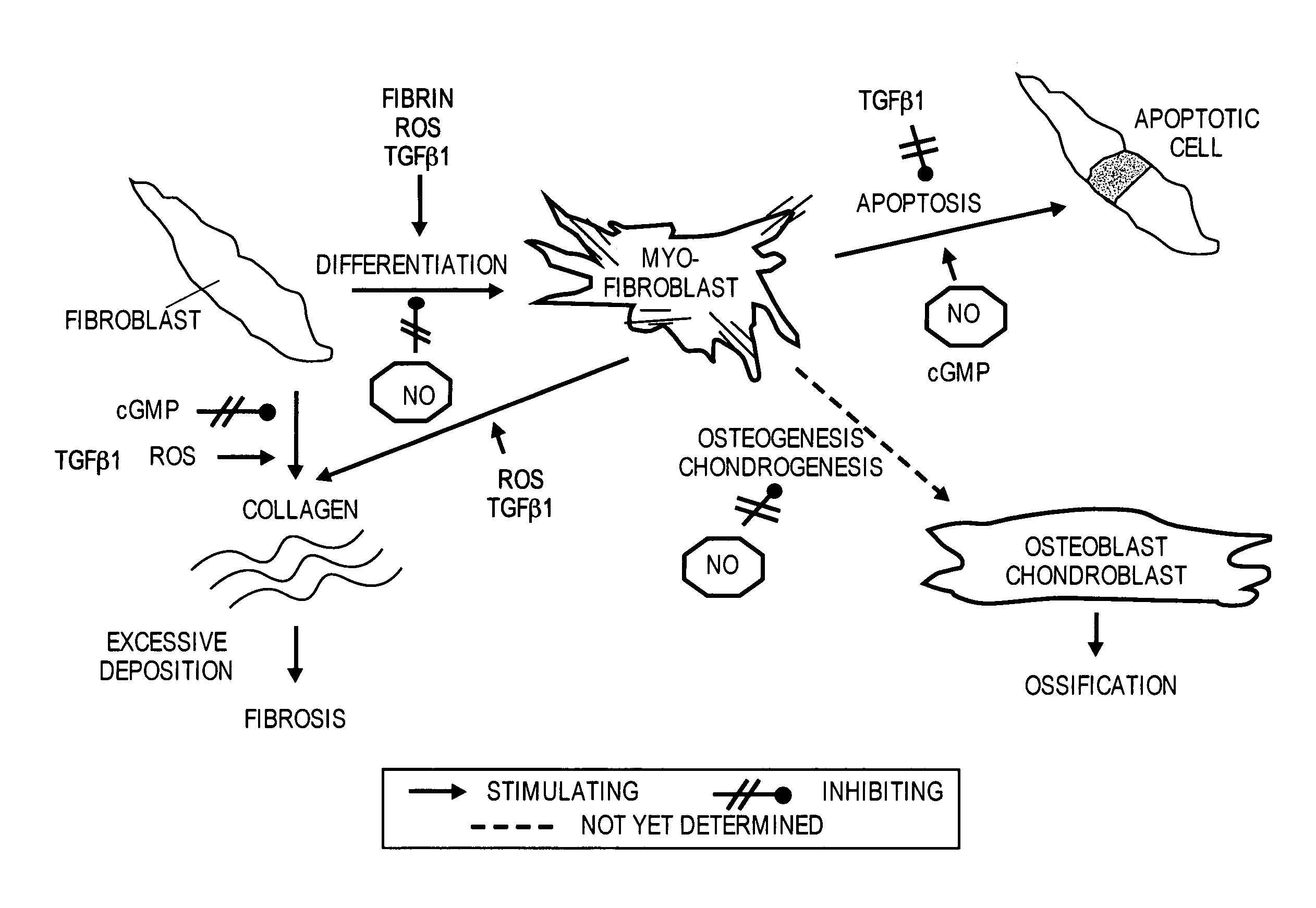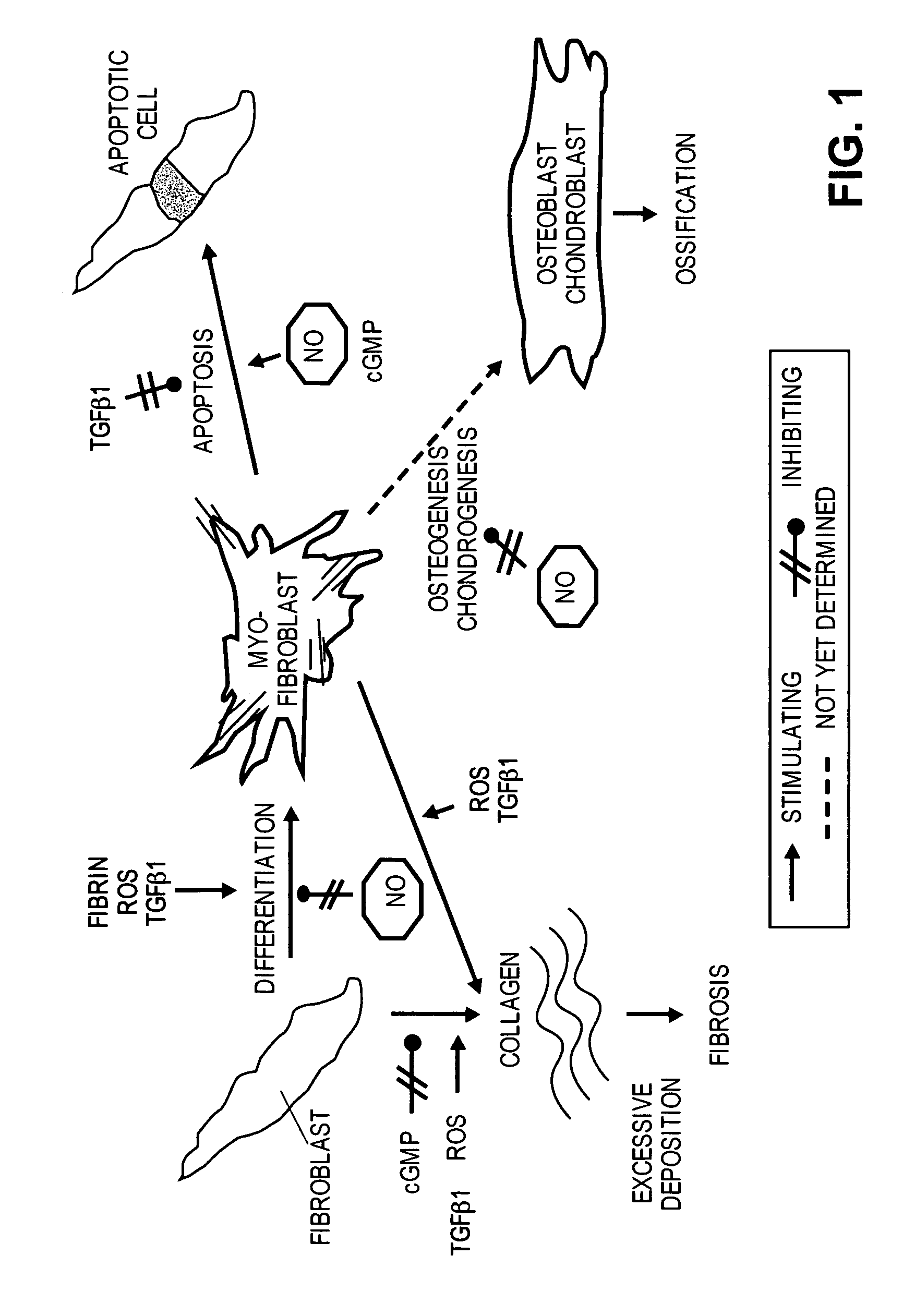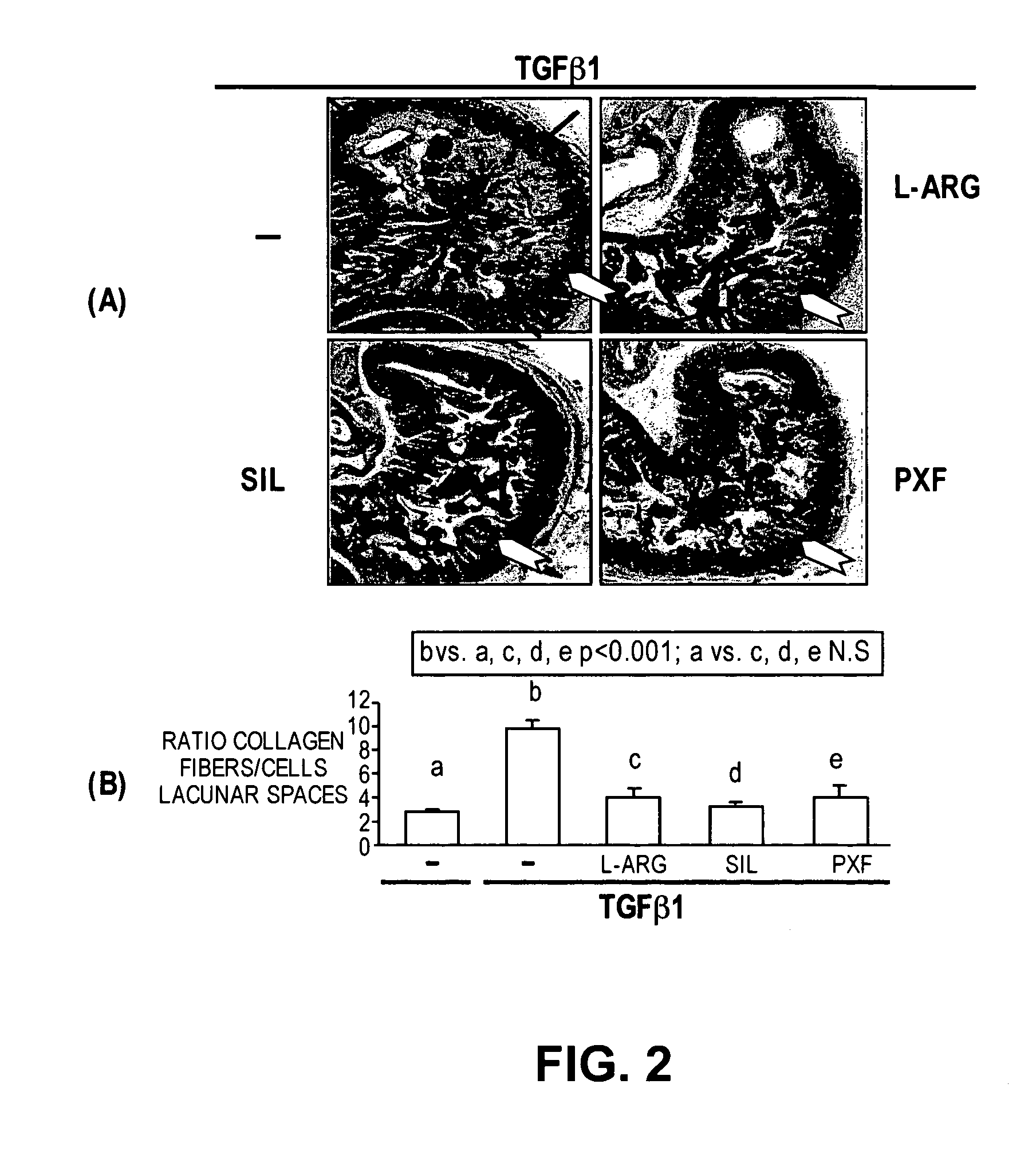Methods of use of inhibitors of phosphodiesterases and modulators of nitric oxide, reactive oxygen species, and metalloproteinases in the treatment of peyronie's disease, arteriosclerosis and other fibrotic diseases
a technology of phosphodiesterases and inhibitors, which is applied in the field of peyronie's disease, arteriosclerosis and other fibrotic conditions, can solve the problems of persistent fibrosis, erectile dysfunction, and fibrosis, and achieve the effects of reducing the expression of collagen i, reducing the size of pd plaques and collagen/fibroblast ratio, and increasing no levels
- Summary
- Abstract
- Description
- Claims
- Application Information
AI Technical Summary
Benefits of technology
Problems solved by technology
Method used
Image
Examples
example 1
Spontaneous iNOS Induction In Vivo in the PD Plaque Leads to Increased NO Synthesis, Peroxynitrite Formation, and Fibroblast Apoptosis
[0214]It has been reported that aging per se results in the spontaneous induction of iNOS and the formation of the NO metabolite, peroxynitrite, in both the rat hypothalamus (Ferrini et al., 2001b; Vernet et al., 1998) and corpora cavernosa (Ferrini et al., 2001a). This was accompanied by apoptosis of both the neurons and the cavernosal smooth muscle. In the TGF-β1 induced rat model of PD, a similar iNOS induction in the TA (Bivalacqua et al., 2000; Hellstrom, 2001) has been reported. Initially, it was assumed that this process of iNOS induction was deleterious to the TA.
[0215]As proposed herein, it is believed that iNOS induction in the TA, and perhaps in fibrosis in general, is a beneficial, anti-fibrotic, cellular defense mechanism. The locally produced NO from elevated iNOS would inhibit collagen deposition, oppose pro-fibrotic agents, and induce ...
example 2
Inhibition of iNOS Activity In Vivo Stimulates Both Collagen Synthesis and Collagen Fiber Deposition in the Rat PD-Like Plaque
[0220]The studies with L-arginine detailed in Example 1 show modulation of the size of the PD plaque by NO. To determine whether the NO involved in this anti-fibrotic process emanated from iNOS, we studied in the TGF-β1 rat model the effects of specifically blocking iNOS activity by the long-term oral administration of L-NIL, a specific iNOS inhibitor (Ferrini et al., 2002, Vernet et al., 2002). In the TGF-β1 injected rat model, treatment with L-NIL, which lowers NO derived from iNOS, induced a remarkable expansion and thickening of the TA that was due to excessive collagen fiber deposition (Ferrini et al., 2002). We also observed a considerable increase in peroxynitrite as indicated by nitrotyrosine formation in the TA (Ferrini et al., 2002). These observations further support the role of NO from iNOS in reducing the growth of the plaque in the rat TA.
[0221]...
example 3
The Inhibition of PDE Activity In Vivo Reduces Collagen Deposition and Intensifies Fibroblast Apoptosis in the PD-Like Plaque in the Animal Model
[0222]Numerous studies have documented that increasing the levels of cGMP by inhibition of PDE enzymes, either with non-specific PDE inhibitors, such as pentoxifylline (Corbin and Francis, 1999; Uckert et al., 2001; Fischer et al., 2001; Desmouliere et al., 1999; Kremer et al., 1999), or specific isoform inhibitors for PDE-5 such as exisulind (Chan et al., 2002; Takuma et al., 2001), can inhibit collagen synthesis and fibrosis and can induce apoptosis in vivo and in cultured cells (Chiche et al., 1998; Pandey et al., 2000; Tao et al., 1999; Loweth et al., 1997; Sirotkin et al., 2000; Taimor et al., 2000; Schade et al., 2002; Horio et al., 1999; Thompson et al., 2000). Thus, elevating cGMP levels may be able to inhibit tunical plaque formation. A study was performed to determine whether the antifibrotic effects of NO in human and rat PD may ...
PUM
| Property | Measurement | Unit |
|---|---|---|
| concentration | aaaaa | aaaaa |
| body weight | aaaaa | aaaaa |
| luminal diameter | aaaaa | aaaaa |
Abstract
Description
Claims
Application Information
 Login to View More
Login to View More - R&D
- Intellectual Property
- Life Sciences
- Materials
- Tech Scout
- Unparalleled Data Quality
- Higher Quality Content
- 60% Fewer Hallucinations
Browse by: Latest US Patents, China's latest patents, Technical Efficacy Thesaurus, Application Domain, Technology Topic, Popular Technical Reports.
© 2025 PatSnap. All rights reserved.Legal|Privacy policy|Modern Slavery Act Transparency Statement|Sitemap|About US| Contact US: help@patsnap.com



